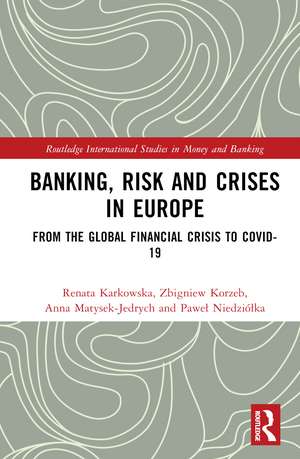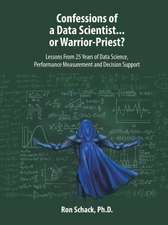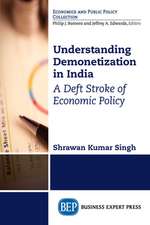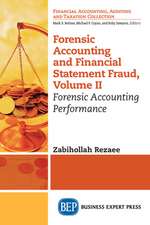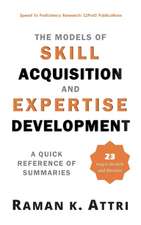Banking, Risk and Crises in Europe: From the Global Financial Crisis to COVID-19: Routledge International Studies in Money and Banking
Autor Renata Karkowska, Zbigniew Korzeb, Anna Matysek-Jędrych, Paweł Niedziółkaen Limba Engleză Hardback – 13 apr 2023
Din seria Routledge International Studies in Money and Banking
-
 Preț: 309.94 lei
Preț: 309.94 lei -
 Preț: 325.16 lei
Preț: 325.16 lei -
 Preț: 284.40 lei
Preț: 284.40 lei -
 Preț: 313.60 lei
Preț: 313.60 lei -
 Preț: 311.41 lei
Preț: 311.41 lei -
 Preț: 307.47 lei
Preț: 307.47 lei -
 Preț: 313.17 lei
Preț: 313.17 lei -
 Preț: 341.55 lei
Preț: 341.55 lei -
 Preț: 309.87 lei
Preț: 309.87 lei -
 Preț: 310.84 lei
Preț: 310.84 lei - 9%
 Preț: 864.83 lei
Preț: 864.83 lei -
 Preț: 665.08 lei
Preț: 665.08 lei - 18%
 Preț: 1175.01 lei
Preț: 1175.01 lei - 18%
 Preț: 1122.64 lei
Preț: 1122.64 lei - 18%
 Preț: 1056.00 lei
Preț: 1056.00 lei - 18%
 Preț: 1067.14 lei
Preț: 1067.14 lei - 24%
 Preț: 148.98 lei
Preț: 148.98 lei - 25%
 Preț: 503.80 lei
Preț: 503.80 lei - 18%
 Preț: 1058.79 lei
Preț: 1058.79 lei - 26%
 Preț: 820.40 lei
Preț: 820.40 lei - 18%
 Preț: 1058.79 lei
Preț: 1058.79 lei - 28%
 Preț: 821.46 lei
Preț: 821.46 lei - 18%
 Preț: 1057.40 lei
Preț: 1057.40 lei - 26%
 Preț: 765.01 lei
Preț: 765.01 lei - 18%
 Preț: 1056.28 lei
Preț: 1056.28 lei - 15%
 Preț: 254.03 lei
Preț: 254.03 lei - 18%
 Preț: 1064.70 lei
Preț: 1064.70 lei - 18%
 Preț: 1113.25 lei
Preț: 1113.25 lei - 18%
 Preț: 702.31 lei
Preț: 702.31 lei - 18%
 Preț: 1166.68 lei
Preț: 1166.68 lei - 26%
 Preț: 849.37 lei
Preț: 849.37 lei - 18%
 Preț: 1116.38 lei
Preț: 1116.38 lei - 25%
 Preț: 851.99 lei
Preț: 851.99 lei - 18%
 Preț: 1060.87 lei
Preț: 1060.87 lei - 25%
 Preț: 823.57 lei
Preț: 823.57 lei - 18%
 Preț: 1114.70 lei
Preț: 1114.70 lei - 25%
 Preț: 824.53 lei
Preț: 824.53 lei - 26%
 Preț: 1188.26 lei
Preț: 1188.26 lei - 25%
 Preț: 853.07 lei
Preț: 853.07 lei - 18%
 Preț: 1114.30 lei
Preț: 1114.30 lei -
 Preț: 418.22 lei
Preț: 418.22 lei - 25%
 Preț: 857.93 lei
Preț: 857.93 lei - 18%
 Preț: 1060.25 lei
Preț: 1060.25 lei - 18%
 Preț: 1168.76 lei
Preț: 1168.76 lei - 18%
 Preț: 1056.00 lei
Preț: 1056.00 lei - 25%
 Preț: 854.14 lei
Preț: 854.14 lei - 18%
 Preț: 1059.48 lei
Preț: 1059.48 lei - 18%
 Preț: 1240.95 lei
Preț: 1240.95 lei - 26%
 Preț: 1187.46 lei
Preț: 1187.46 lei
Preț: 891.40 lei
Preț vechi: 1087.07 lei
-18% Nou
170.56€ • 177.66$ • 142.19£
Carte tipărită la comandă
Livrare economică 28 martie-11 aprilie
Specificații
ISBN-10: 103239742X
Pagini: 196
Ilustrații: 19 Tables, black and white; 29 Line drawings, black and white; 29 Illustrations, black and white
Dimensiuni: 156 x 234 x 13 mm
Greutate: 0.45 kg
Ediția:1
Editura: Taylor & Francis
Colecția Routledge
Seria Routledge International Studies in Money and Banking
Locul publicării:Oxford, United Kingdom
Public țintă
PostgraduateCuprins
1. Introduction: European banking transformation (the COVID-19 impact) 2. COVID-19 versus historical pandemics: Economic, social, and political impact 3. Banking crises: Theory, practice and the special case of a pandemic as a source of a banking crisis 4. European banking sector performance: From global financial crisis to COVID-19 pandemic 5. Policy response in the banking sector in the context of the COVID-19 epidemic 6. Changing the business model of banking operations 7. Transforming credit risk in the light of the COVID-19 pandemic 8. Challenges in managing other banking risks 9. Post-COVID-19 European banking sector: What is the ¿new normal¿?
Notă biografică
Renata Karkowska, Ph.D., is an Associate Professor at the University of Warsaw, Faculty of Management
Zbigniew Korzeb, Ph.D., is an Associate Professor at the Bialystok University of Technology, Faculty of Engineering Management
Anna Matysek-J¿drych, Ph.D., is a Professor at the Poznä University of Economics and Business, Institute of International Business and Economics
Pawe¿ Niedzió¿ka Ph.D., is an Associate Professor at the SGH Warsaw School of Economics, Collegium of Socio-Economics
Descriere
European economies have been plagued by successive crises, from the Global Financial Crisis (GFC) to the COVID-19 pandemic, through to the economic and geopolitical instability in Ukraine.
These events, the uncertainty they generate combined with dynamic technological progress and significant sociocultural changes, have profoundly modified the character of modern finance. Understanding what happened, what mechanisms worked, and the reaction of the banking sector, bank customers, and policymakers require an in-depth and structured analysis.
This book critically assesses the impact of these events, notably the COVID-19 pandemic, on the performance of the banking sector in Europe and serves as a compendium of knowledge on recent changes in European banking from two perspectives: firstly, European banking transformation, analyzing the process of what has already taken place, in particular, the GFC and COVID-19 crises; secondly, the challenges facing the operations and strategic management of European banks. It identifies specific areas of impact on the activity of commercial banks and the determining factors that will shape the economic and financial condition of banks and their customers - borrowers - in the future. Risk management, particularly credit risk, is a key focus of this volume. Each chapter, implicitly or explicitly, address a variety of questions that can help the reader to understand the complex nature of the transformation of the banking sector.
The book provides a structured reference for those concerned with the impact of volatility on the business models of modern banks. As such, it will find a broad audience among students, academics, banking, financial, business, and industry professionals, policymakers, and market regulators.
